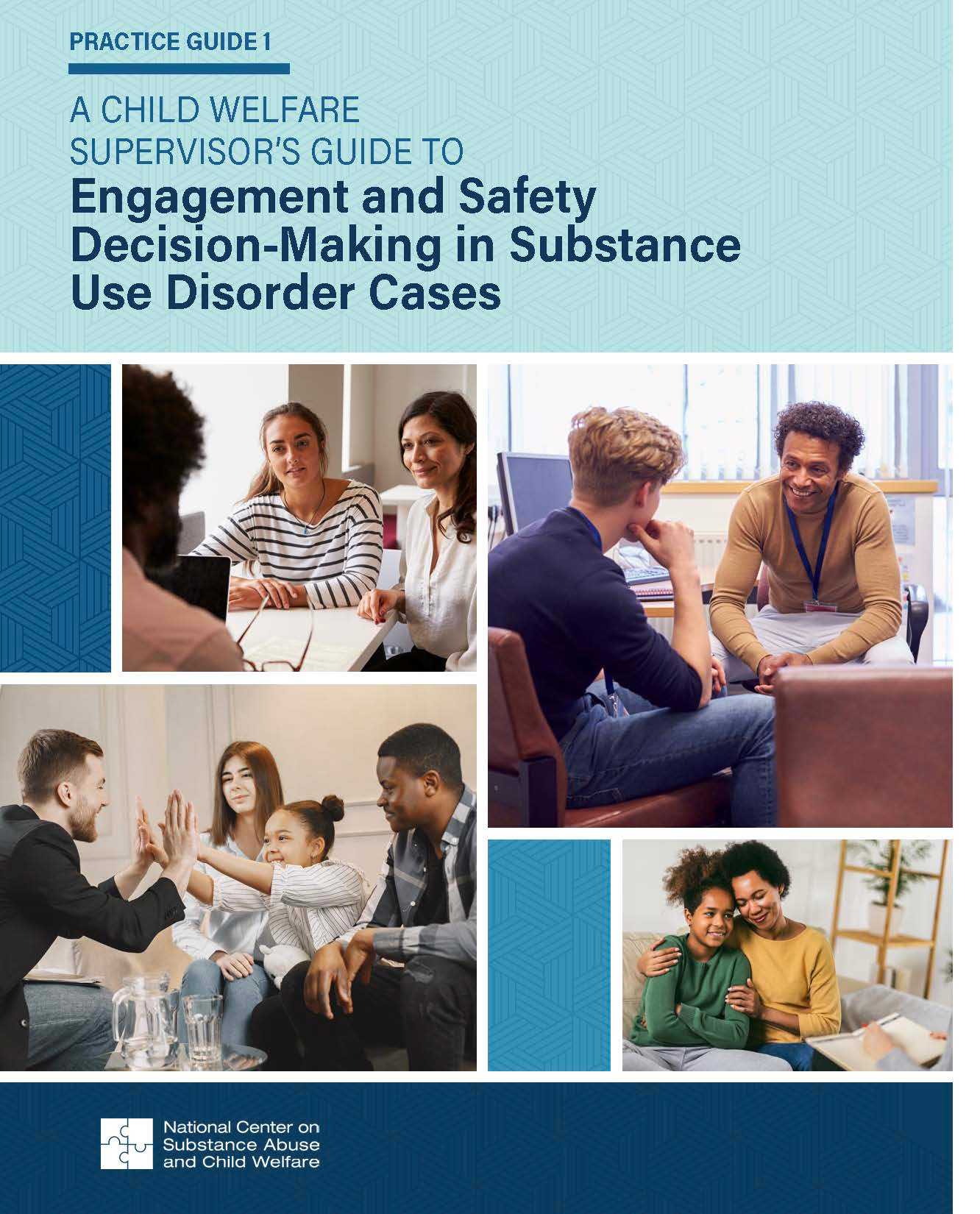Safety and Risk
Families with parental substance use issues, mental health challenges, and child welfare involvement often have complex needs. These resources help professionals assess and respond to safety and risk factors to improve family well-being.
Highlighted Resource
Child Welfare Supervisor’s Practice Guides to Safety and Risk

National Center on Substance Abuse and Child Welfare, 2024
These two child welfare supervisor’s practice guides are supplements to the safety and risk video series for child welfare professionals
...(Read More)Policy and Practice Resources
Child Welfare Supervisor’s Practice Guides to Safety and Risk
National Center on Substance Abuse and Child..., 2024
These two child welfare supervisor’s practice guides are supplements to the safety and risk video series for child welfare professionals
... (Read More)Child Welfare Practice Tip Sheets Series
National Center on Substance Abuse and Child..., 2023
This five-part series was developed for child welfare workers serving families affected by parental substance use disorders (SUDs). The
... (Read More)The Use of Safety and Risk Assessment in Child Protection Cases
Child Welfare Information Gateway, 2022
Discusses state child welfare laws and policies that provide guidance to workers for
... (Read More)FDA Warning on Accidental Ingestion by Children of Food Products Containing THC
U.S. Food & Drug Administration, 2022
This alert has been updated to include new data reported to the FDA and national
... (Read More)Health Care Professionals' Guide to Keeping Babies and Preschoolers Safe from Addictive, Toxic Substances
Center on Addiction, 2021
Provides guidance on talking with parents about protecting their children from
... (Read More)Parents' Guide to Keeping Babies and Preschoolers Safe from Addictive, Toxic Substances
Center on Addiction, 2021
Includes items parents should be aware of that can be harmful to children and ways to
... (Read More)Concrete Support in Times of Need: Protective & Promotive Factors
Center for the Study of Social Policy, 2018
Discusses the importance of helping parents identify, find, and receive concrete
... (Read More)Protective Factors to Promote Well-Being and Prevent Child Abuse & Neglect
Child Welfare Information Gateway
This webpage defines the six protective factors included in the Children’s Bureau’s
... (Read More)Related Online Training, Videos, and Webinars
Safety and Risk Video Series
National Center on Substance Abuse and Child..., 2023
Provides child welfare professionals with details on the unique safety factors related to parental substance use disorders (SUDs). It
... (Read More)State and Local Examples
Opioid Overdose Risk Factors
Commonwealth of Massachusetts, 2023
Provides information on risk factors and ways to prevent a fatal overdose.
... (Read More)Child Protective Services Safety Intervention Standards
Wisconsin Department of Children and Familie..., 2022
Provides guidelines for child safety decisions and actions is essential and relevant
... (Read More)State Guides and Manuals for Family Preservation and Support
Child welfare Information Gateway
Links to online publications created by State agencies to describe their services and
... (Read More)Additional Resources
Protective Factors Surveys
FRIENDS National Center for Community-Based ..., 2021
Helps child welfare agencies to assess families’ protective factors and changes over
... (Read More)How Can Understanding Risk and Protective Factors Predict Chronic Neglect for CPS-Involved Families
Casey Family Programs, 2020
Examines the use of risk assessment tools to predict chronic neglect and shows that
... (Read More)How Can Child Protection Agencies Use Safety Science to Promote a Safety Culture?
Casey Family Programs, 2020
Examines how implementing the use of safety science to create a safety culture in
... (Read More)What Safety and Risk Assessment Tools Are Used in Tribal Child Welfare?
Casey Family Programs, 2018
Defines safety and risk assessments, discusses findings from a national needs
... (Read More)